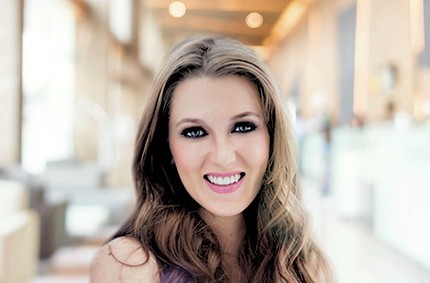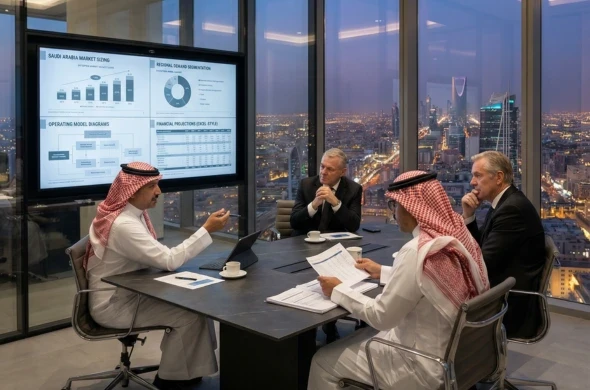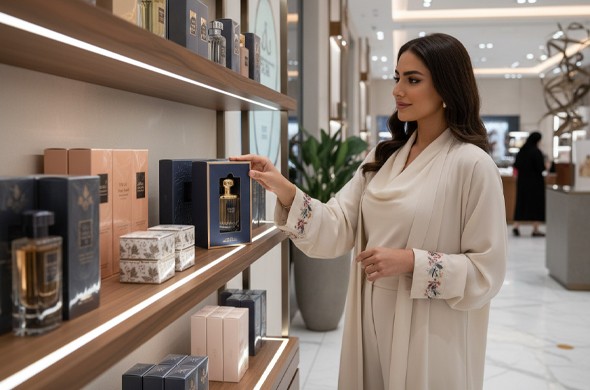Imagine stepping into the world-renowned Dubai Mall, an actual shrine to consumerism in the heart of Dubai, United Arab Emirates. You're surrounded by brands that embody opulence and elegance. There are sparkling Cartier timepieces here and the sleek modern designs of Prada and Louis Vuitton there. Luxury is not just accessed in this space; it's celebrated.
But what compels people to invest in these high-end products, often with exorbitant price tags? Is it a reflection of personal aspirations, or is something deeper at play? Thanks to consumer product consulting insights and years of CPG consulting observations, we now understand that the psychology behind purchasing luxury goods goes far beyond mere aesthetics or functional necessities.
In this article, we aim to explore these psychological triggers catalyzing this continual growth in the Middle East's luxurious consumer culture.
What Are Some Examples of Luxury Goods?
When we talk about luxury goods, what exactly are we referring to? Well, it's a broad category that ranges from small, everyday purchases like designer sunglasses to extravagant purchases like yachts and private jets. Some common examples of luxury goods include:
- Designer clothing, bags, and shoes
- High-end jewelry and watches
- Fine dining experiences at Michelin-starred restaurants
- Luxury cars and private transportation services
- Premium skincare and beauty products
- Exclusive travel experiences and accommodations
- Rare or limited edition collectibles such as art, wine, and antiques
The concept of luxury is subjective and can differ from person to person. For some, it concerns the price tag and exclusivity. For others, it may be all about the experience or craftsmanship. However, one thing is sure: luxury goods are often associated with high quality, superior design, and impeccable service.
How Big Is the Luxury Goods Market?
How much are people spending on luxury goods, you might ask? Even with the rollercoaster years we've had recently, folks in the United Arab Emirates, Saudi Arabia, and broadly across the Middle East and Africa still found a way to invest billions in that bit of extra sparkle.
In 2022 alone, people from the Middle East spent over USD 14.08 Billion on luxury items. It's expected to reach USD 20.39 Billion by the end of 2029. You might think it stems from having a lot of extra money lying around. But the truth is that purchasing high-end brands holds significant cultural and emotional importance in rapidly growing and urbanizing regions like these.
Believe it or not, even when things get tough economically or politically, this market doesn't easily shake. People will cut their budgets from elsewhere but prefer to hold onto these prized purchases. It's safe to say there's a deeper story to tell here.
Some Decisions Aren't Rational
Rationally speaking, it may not make much sense to drop thousands of dollars on a single handbag or watch, but we don't always behave rationally. In fact, buying decisions are often influenced more by emotions than logic.
Consider the concept of 'retail therapy'. Have you ever had a rough day at work and decided to splurge on something nice for yourself as a pick-me-up? That's not a rational decision but an emotional one. The same principle applies to luxury goods. The anticipation of owning something high-end can create a sense of excitement and happiness.
This emotional payoff is one reason why many people continue to buy luxury goods even when they can't necessarily afford them. It's about the deep emotional connection and subsequent joy that comes from these extravagant purchases.
Does a Higher Price Equal Higher Quality?
The old adage, "You get what you pay for," has held sway in the consumer market for quite some time. The idea behind this is simple: higher-priced items are generally perceived as having better quality. But why does this perception hold so much weight when buying high-end goods?
A study conducted by Cornell Bonn revealed that people perceived the same wine to be more enjoyable when they believed it cost more, even though the product was exactly the same. This "price-quality" bias operates in our minds, often persuading us that expensive items are superior.
Furthermore, luxury brands invest heavily in high-quality materials and craftsmanship. This results in exceptional durability and timeless design. Consumer products consulting professionals have found that this factor plays a considerable role in making people feel their investment is worth every penny.
Self-Esteem May Impact a Person's Purchases
Now, let's look at the person in the mirror. Why does that Rolex watch, that Cartier necklace or those Gucci shoes have such a pull on us? Well, our purchases sometimes are linked to our self-esteem.
There's research that suggests people with lower self-esteem are more likely to buy high-end products. It's not about being shallow or materialistic but rather about seeking validation and upliftment from external sources.
When you feel good about yourself, you project that onto others. So, wearing a luxury good that society views as being associated with success and prestige can inherently make you feel more confident and successful.
Authenticity Matters
In the age of copycats and knock-offs, authenticity carries substantial weight. People are buying an experience, a piece of history, a genuine artifact that has a distinctive pedigree and craftsmanship attached to it.
Many consumers value the traditional know-how in luxury brands, and this emotional connection strengthens their loyalty. When customers perceive products as authentic, they associate the item with trust, quality, and uniqueness. That's why prestigious brands invest significant capital into crafting a compelling brand story. The narrative plays an integral role in sealing their reputation and making customers feel part of their legacy.
Moreover, authenticity becomes even more critical in regions like the UAE & Saudi Arabia, where fake goods have often infiltrated markets. Spotting designer fakes has become a common problem in these regions, and it's no surprise that consumers are willing to pay extra for the real deal. Hence, the market for authentic luxury goods remains strong.
What Are the Most Common Luxury Goods that People Purchase?
According to recent figures, fashion and accessories top the charts, with renowned designers like Gucci, Chanel, and Louis Vuitton being highly coveted. The excitement around their new collections remains unabated each season.
Next in line are high-end watches and jewelry from prestigious brands such as Rolex or Cartier, which often serve as a symbol of success and accomplishment among professionals. Automobiles also hold a significant place in consumers' hearts, with brands like Rolls-Royce, Bentley, and Mercedes-Benz becoming common signifiers of personal wealth.
Also worth noting is the growing demand for luxury experiences—think first-class flights or 5-star vacations. Wealthy consumers are increasingly investing in making unforgettable memories through extravagant journeys worldwide.
Conclusion
In a world where every purchase we make tells a story about our aspirations, values, and status, choosing to buy a luxury item is an expressive act. It's essentially declaring: "I appreciate quality and beauty," "I value craftsmanship," or simply "I made it."
But understanding your customers' desires on such a personal level isn't easy. As an accomplished CPG consulting firm specializing in consumer products consulting, we can help your brand discover what drives your consumers towards luxury goods—and find ways to meet these exploring the psychological reasons behind buying luxury goods provides fascinating insights. It's about so much more than just owning expensive things. The lure of luxury, as we've discovered, intertwines with deep emotional connections, perceptions of quality and authenticity, unique experiences, and even personal self-esteem. needs while carrying your brand story forward.
Read our latest insights, ideas, and perspectives that explore the trends shaping the future of business and society. Our consultancy services go hand-in-hand with these insights,confirming our position as industry leaders. Get in touch to find out more about our consulting services and industry expertise.



